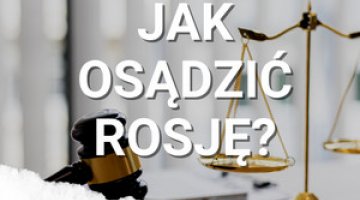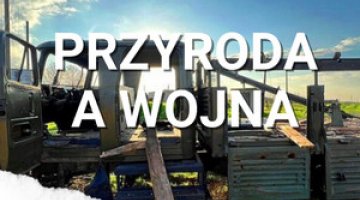Analyses
Unclear prospects for the Ukraine/EU Association Agreement
The President of Ukraine, Viktor Yanukovych, arrived on 13 September in Brussels at the invitation of the president of the European Commission, Jose Manuel Barroso. The main subject of their talks was the negotiations on the Association Agreement between Ukraine and the EU. These have been delayed for several months by the Ukrainian government, which perceives the EU’s current proposals as unfavourable for Ukraine. Both sides have emphasised the good atmosphere in their relations, but the meeting did not bring about a breakthrough, which confirms that significant discrepancies in their negotiating positions exist. If Brussels maintains its hitherto inflexible position towards Ukraine’s demands, the speed of the negotiations will depend on whether Kyiv favours the option of exploiting the agreement for political purposes (i.e. to improve the country’s image), which will permit it to be signed quickly; or that of defending Ukraine’s economic interests.
Differences of interest concerning the Association Agreement
The Ukrainian president’s visit, which took place at President Barroso’s initiative, was an attempt to break a several months long deadlock in negotiations on the Association Agreement (AA), which covers a deep and comprehensive free trade area (FTA+). After coming to power, President Yanukovych declared that the agreement would be signed quickly; he even stated that the negotiations would be finished by the end of this year. However, further rounds of talks did not bring about the expected breakthrough, and the Ukrainian negotiators openly treated the procedure disrespectfully. Also, some months ago the Ukrainian government’s rhetoric began to change; they increasingly emphasised the need to defend their national interest in their negotiations with the EU.
For the Ukrainian government, signing the AA could be used to improve its image both internally (as a success for its European integration policy) and externally (as an element of building up a counterbalance to its rapprochement with Russia).
Politically, the main point of contention in the negotiations is Ukraine’s demand that the EU should give it a prospect of EU membership. However, it seems that for the current government, which has a realistic approach to its relations with Brussels, this demand’s only significance is as a bargaining chip.
The main problem is the negotiations on the FTA+. The real state of the talks is difficult to assess because of the lack of any detailed information. However, it is clearly apparent that significant differences in the two sides’ positions exist. Ukraine does not want to accept all the EU’s norms and standards (concerning ecology and the defence of intellectual property rights, among others), assuming that since it has no prospect of EU membership, it need not meet the EU’s requirements. Kyiv sees some of these regulations as being potentially costly and unfavourable for its economy. Brussels, in turn, refutes this selective attitude to accepted standards. Nor was any agreement achieved concerning the terminology of phytosanitary standards and products. Finally, Kyiv would like a transitional period (or exclusion from the FTA+) to be extended for some branches of its industry, including the automotive industry. It has also applied for access to the EU market for its agricultural goods, a sector in which Ukraine has great export potential. However, Brussels protects the EU’s market, offering only small export quotas for selected products.
The balance of gains and losses
Currently, the government in Kyiv sees the EU’s proposals as unfavourable, above all for those medium-size enterprises which would be hardest hit by the Ukrainian market opening up to goods from the EU. The FTA+ does foresee a transition period for Ukrainian companies; however, if that time is not used to introduce reforms preparing for EU competition, the result for Ukraine may be mass bankruptcies and a rise in unemployment. Furthermore, introducing all the European norms and standards into Ukrainian businesses would be accompanied by enormous expenditures, and the prospect of opening up the EU market is of limited importance to them, as most of them do not produce articles which could compete on the EU market.
At the same time, however, in the longer term, the AA is associated with the prospect of modernising the Ukrainian economy and integrating it with the EU market (the predicted inflow of capital and investments; opening up to modern technologies). It seems, however, that in the government’s eyes, the possible long-term benefits do not balance out the probable short-term losses.
The Association Agreement does not bring any direct benefits to those big businesses which influence the Ukrainian government, either, as they already enjoy export quotas for their competitive products on the EU market (above all steel products), with which they are well satisfied.
The prospects
Considering that both sides have adopted positions which are not very flexible, a breakthrough in the negotiations seems unlikely. Currently in Kyiv, the opinion most clearly prevails that Brussels’ proposals are unfavourable for Ukraine, and that it is necessary to work to obtain the maximum concessions from the EU, even if this happens at the cost of worsening Ukraine’s image in Brussels. This kind of attitude will drag the negotiations out.
However, it is still possible that the option of politically exploiting the AA in the short term will win through in Ukraine, especially as in its currently proposed form, the agreement will not adversely affect those businesses linked to the Party of Regions. Kyiv may also come to a compromise in exchange for concessions from Brussels in other fields (such as the ongoing easing of visa restrictions). In this case, the signature of the agreement should be expected next year.
Sławomir Matuszak, in cooperation with Anna Górska




